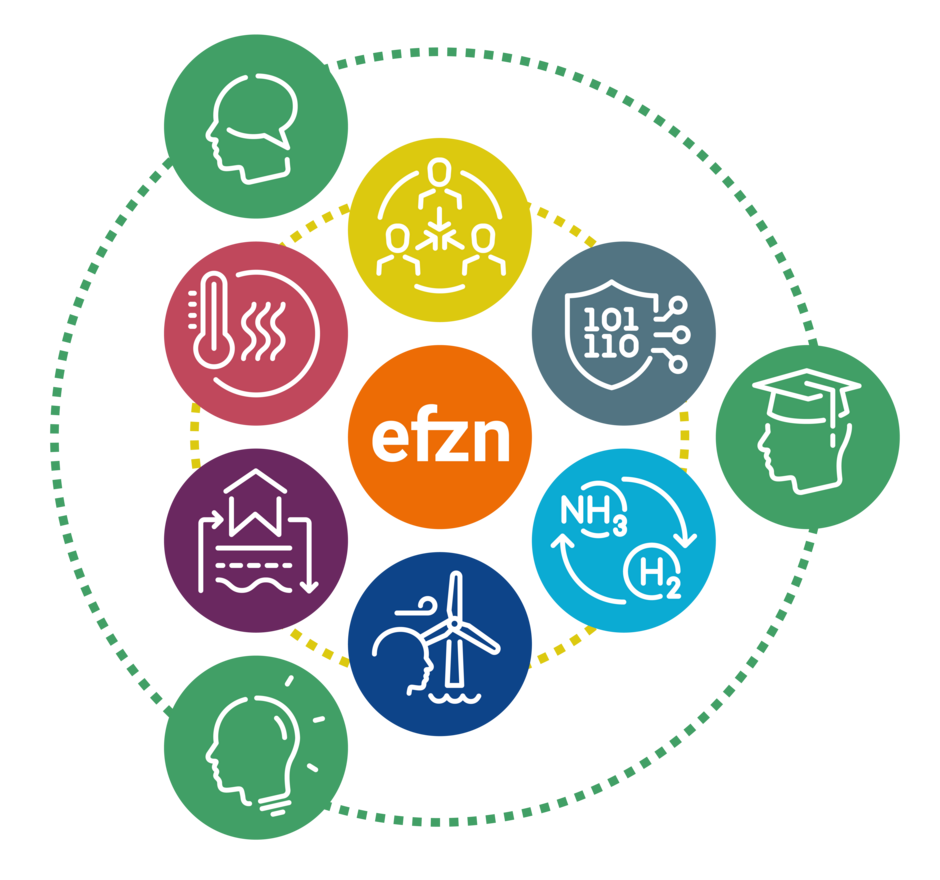Research Program
Transforming the Energy System Lower Saxony (TEN.efzn)
Six research platforms, three transfer areas, one efzn alliance. Our goal is to strategically boost the energy research in Lower Saxony, to increase its international visibility, to develop viable solutions for the technological and societal challenges of the energy transition - and to strengthen Lower Saxony's role as a pioneering hub for energy, education and innovation.
Strategically enhancing Lower Saxony's interdisciplinary and transdisciplinary energy research landscape
Joint research for a sustainable future: Transforming our energy system is a communal task that depends on scientific ideas and innovations. Innovation is created primarily through close cooperation and extensive collaboration between different research areas. This is why TEN.efzn is massively expanding the interdisciplinary, collaborative energy research in Lower Saxony.
Divided into six closely interlinked research platforms, the program combines the key strengths of Lower Saxony's energy research and also opens up new innovative fields of inquiry. The program's distinguishing feature is the fact that it combines technological and scientific energy research with sociological transformation research, thus providing a comprehensive perspective for putting energy solutions into practice.
The research platforms are linked via a new type of transfer system that promotes the exchange between science, business, politics and civic society and fosters the practical implementation of research findings, specialist training and the creation of both new innovations and start-ups. The overarching goal of TEN.efzn is to strategically develop and enhance Lower Saxony's energy research by 2030.
This joint program is funded by the state of Lower Saxony and the Volkswagen.Stiftung with a total of 58.2 million euros. This is the highest funding ever granted to a multi-site energy research program by the Lower Saxonian Ministry of Science and Culture.

The TEN.efzn research program will significantly advance the energy transition in our state. The program's interdisciplinary and cross-locational approach address the entire process on the path to green energy. The researchers' findings will help to design even more efficient energy systems in the future and will ensure a stable energy supply for homes and industries - even when the wind doesn't blow and the sun doesn't shine.
The Six Research Platforms
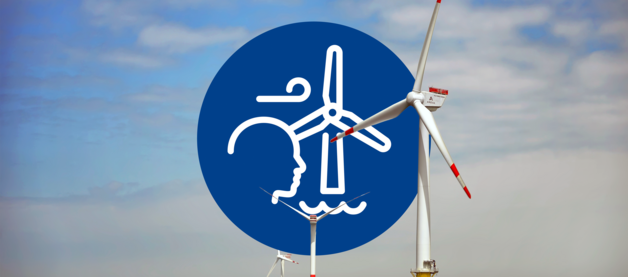
Living Lab 70 GW Offshore Wind

State Graduate Program Hydrogen and Hydrogen Derivative Ammonia

Trustworthy Digitalization of Safety-Critical Energy Systems

Geo-Energy Systems

Heat

Social Dynamics of the Energy System Transformation
The Transfer Area
TEN.efzn's transfer area aims to bring research results into practice quickly and effectively and to incorporate feedback from society, business and politics into the research process. This is achieved through three main approaches: Transfer through information and exchange, transfer through knowledge and professional training, transfer through business incubation and practical implementation. With a variety of transfer methods and formats involving a wide range of key target groups, the transfer area will ensure that the program's findings are put to practical and sustainable use, ensuring that TEN.efzn's research actively propels the energy transition in Lower Saxony and beyond.
TEN.efzn - Mission Statements

With the TEN.efzn program, we are enhancing Lower Saxony's energy research in a strategic and internationally relevant way. A unique research profile meets enduring and highly interlinked research structures and networks, making Lower Saxony a future-proof location for energy research, training and innovation.

In TEN.efzn, technological and social science issues are directly intertwined. This gives us the opportunity to focus on the socio-technical character of the energy transformation and to not only develop new technologies, but also to understand and shape their social implementation.

It is now vital to pursue the program's ambitious research goals for the benefit of energy research in Lower Saxony as a whole, to implement them sustainably beyond the funding period and to continue to address the most pressing issues.

Looking at current debates in politics and in the media, we can see that the key challenges of the energy transition are not just of a technological, but also of a social nature. The energy transition is a social issue. The TEN.efzn research program will propose crucial solutions to this particular challenge.
Program Members

Carl von Ossietzky University of Oldenburg

German Aerospace Center (DLR)
Institute of Engineering Thermodynamics

German Aerospace Center (DLR)
Institute of Networked Energy Systems

Fraunhofer Institute for Wind Energy Systems
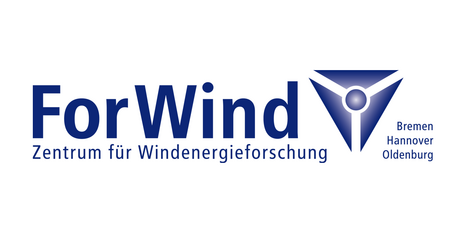
ForWind – Center for Wind Energy Research

University of Göttingen

Leibniz University Hannover

Helmholtz-Zentrum Hereon

HAWK University of Applied Sciences and Arts Hildesheim/Holzminden/Göttingen

Institute for Solar Energy Research in Hamelin (ISFH)
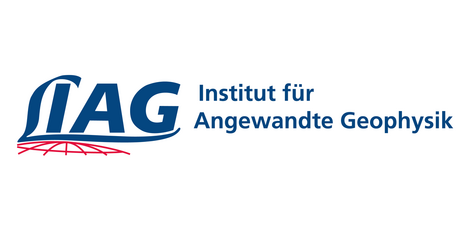
LIAG Institute for Applied Geophysics

OFFIS - Institute for Information Technology

Physikalisch-Technische Bundesanstalt (PTB) - National Metrology Institute of Germany

Sociological Research Institute Göttingen (SOFI)

Steinbeis Innovation Center energieplus

TU Braunschweig

Clausthal University of Technology
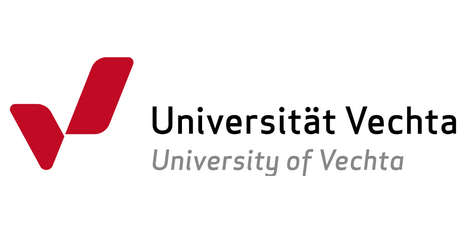
University of Vechta

Supported with funds from zukunft.niedersachsen, the joint science funding program of the Lower Saxony Ministry of Science and Culture and the VolkswagenStiftung.
